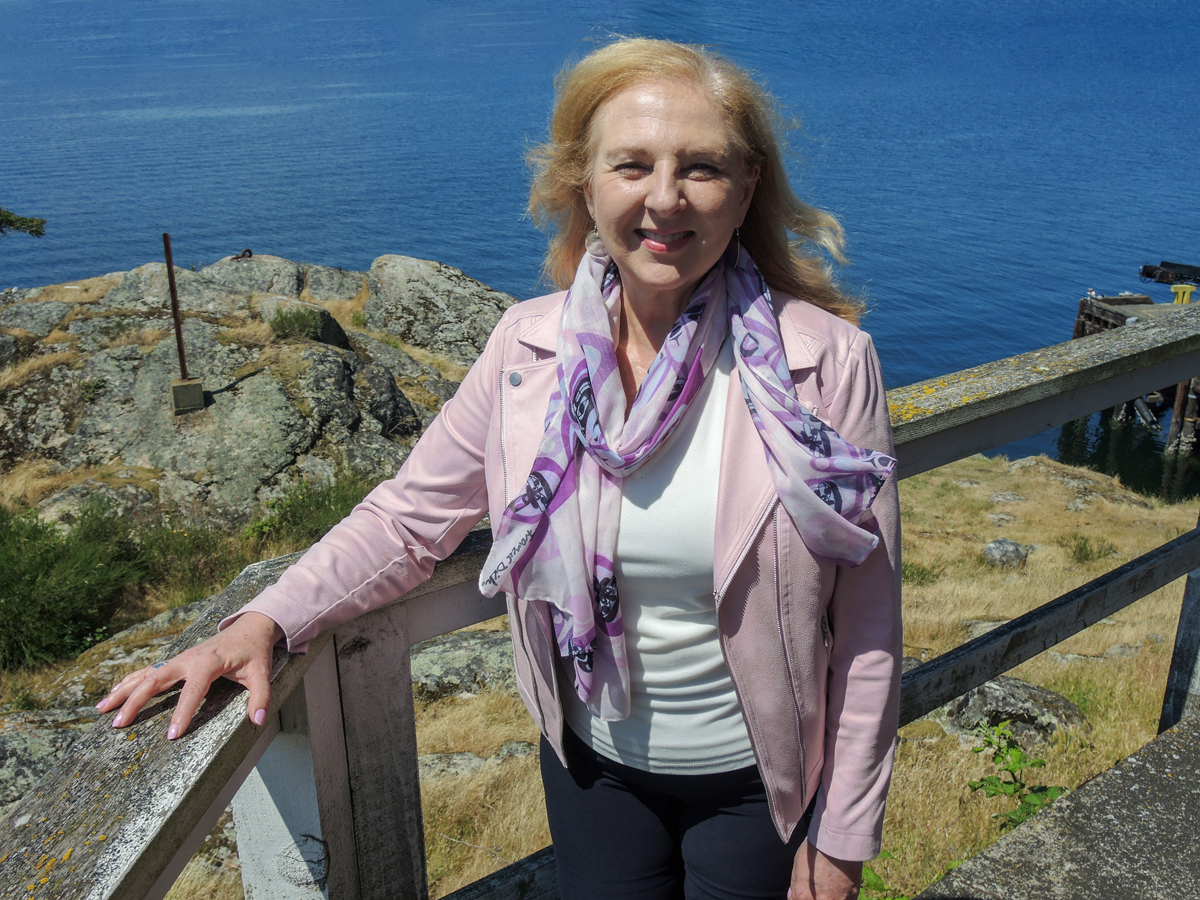5 Questions with the Formation Safety and Environment Indigenous Relations Officer
By Lookout Production on Jul 17, 2024 with Comments 0

Sandra Witt, Formation Safety and Environment Indigenous Relations Officer.
Peter Mallett,
Staff Writer
—
Sandra Witt is the Maritime Forces Pacific (MARPAC) Formation Safety and Environment (FSE) Indigenous Relations Officer.
Her job is an entirely new position created in January within MARPAC’s FSE unit. The Indigenous Relations Officer acts as a liaison between Indigenous communities potentially affected by military operations on the water and senior leadership at the Base. As a member of Canada’s Public Service, her job involves understanding the impacts of Royal Canadian Navy (RCN) and Department of National Defence (DND) activities to Indigenous communities on the water including vessels, weaponry, sonar, and impacts on marine life.
There are several DND properties located in close proximity or adjacent to First Nations communities, many of which have traditional territories that extend into the marine waters where the navy operates and trains. As an official representative for FSE, Witt also advises members of the RCN on the implementation of policy involving Indigenous communities.
With this in mind, the Lookout asked Witt five questions about her new job.
What is the key purpose of your new position with FSE?
Developing better relationships, standardized procedures for engagement and communication with First Nations communities.
Of great importance is to understand how the RCN affects these relationships through operations on the water including vessel operations and where we are sailing, conducting exercises or doing on-the-water training. This could also involve aircraft flights, explosives or weaponry testing and training, and engine activity. There is also a lot of focus on situations where marine mammals are involved, in particular, Orcas.
Coordinating communication and decision-making with all branches and departments of the RCN and DND is crucial so that we are all on the same page. Another key to the job is to identify potential job opportunities and programs of the Department of National Defence that could benefit people living in these communities.
What qualifications and experience do you bring to the job?
I have enjoyed a 30-year career working with Indigenous communities across a number of careers. My degree from Simon Fraser University is in the field of archeology. As an archaeologist I began working with Indigenous communities in the field and spending time in their communities learning about their daily life and challenges, and exploring the real day-to-day aspects of their culture. As an independent consulting archaeologist, I worked on behalf of communities, developing traditional-use studies to better document their relationship with the land and support their land claims work. I subsequently worked at BC Hydro in Indigenous Relations building corporate policy and consulting with communities on the impacts of BC Hydro programs on communities.
I subsequently worked in environmental consulting for a number of larger consulting firms. Key to working in this field was conducting environmental assessments and consulting with several private firms involved with construction projects in Indigenous spaces and traditional territories.
One of the big parts of my previous jobs was to explain to private sector companies why they needed to do the consulting and environmental assessment work with Indigenous communities, and I found it very exciting and rewarding.
What is the biggest challenge you face in your role?
The biggest challenge of my job is balancing the needs of Indigenous communities and the operational needs of the military, and finding solutions that are acceptable and beneficial to both.
Many First Nations communities in this region are very oriented towards living life on coastal waters. These communities have a very close relationship with the sea, a strong interest in preserving their relationship with Orcas and other marine mammals and preserving their fishing activities on the water. All of this is crucial to the survival of their culture.
What is the most important thing you learned about building relations with Indigenous communities?
Engaging early is one of the most valuable lessons I learned early in my career. The earlier you engage Indigenous communities and talk to them about project planning or upcoming operations, the more likely to have a successful outcome. I learned this while working with Indigenous communities on the Fraser River, where vessel activity would affect their traditional fishing rights. As you develop the understanding of these intricate issues, you can better come up with mitigations and become much more effective at working out equitable solutions.
What is the most interesting thing you have learned about the military-Indigenous relations since you began your job?
One of the key things that has impressed me, compared to working in the private sector, is how senior leadership at CFB Esquimalt and Maritime Forces Pacific have a much better understanding of the importance of Indigenous relations. In the past, I have had jobs where I had to fight hard to get people to realize its importance, so seeing such great enthusiasm, support and encouragement for my efforts has been a positive development in my work.
Filed Under: News Release • Top Stories
About the Author:





